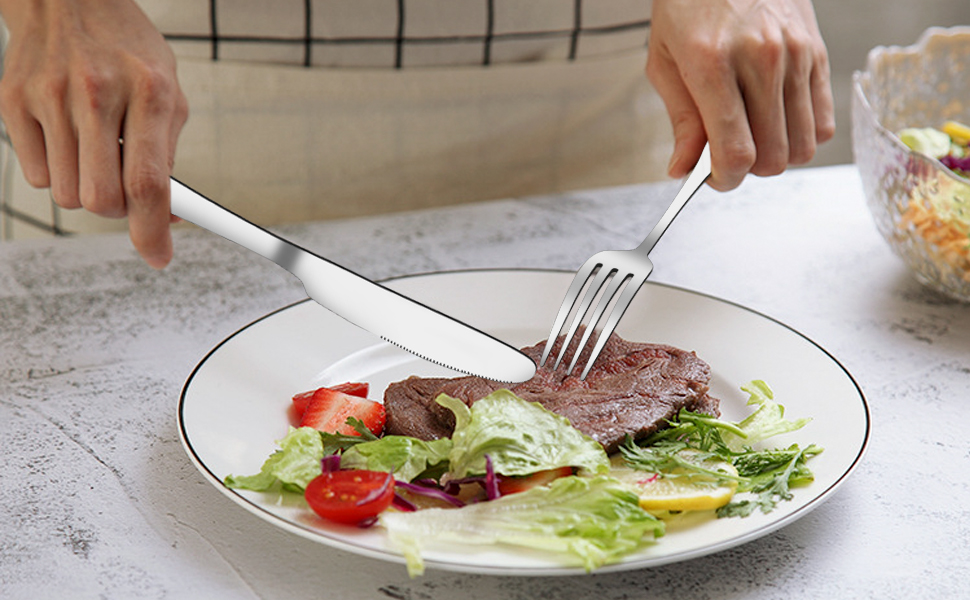For every culinary professional, mastering knife handling is essential. However, even the most experienced chefs can sometimes develop poor habits. Recognizing the knife handling mistakes to avoid is vital for ensuring safety and efficiency in the kitchen. In this article, we will highlight these common errors and provide guidance on how you can enhance your skills to become a more accomplished culinary artist.

The Importance of Proper Knife Handling
Correct knife handling goes beyond merely preventing cuts and injuries; it significantly boosts your workflow and enhances the quality of your dishes. A well-managed knife can be the difference between an exquisitely prepared meal and a kitchen fiasco. For professionals, a knife acts as an extension of your hand, and your technique can reflect your level of expertise.
Grip and Posture: Foundation of Knife Skills
Improper grip is one of the most frequent mistakes to avoid. Many chefs may believe they have mastered it, but minor errors can result in fatigue or accidents. The correct technique involves pinching the blade between your thumb and forefinger while your other fingers wrap around the handle. This grip provides optimal control and minimizes slipping risks.
Posture also plays a critical role. Standing too close or too far from the cutting board can hinder your slicing and dicing abilities. Make sure your shoulders are relaxed and your feet are shoulder-width apart to maintain balance and precision.
Common Mistakes in Knife Maintenance
Knife maintenance is crucial yet often neglected. A dull blade can be more dangerous since it requires greater force, increasing the chance of slipping. It's essential to regularly hone and sharpen your knives. Many professionals err by waiting too long to sharpen their blades. A helpful guideline is to hone your knife before each use and sharpen it as necessary based on how often you use it.
Always remember to clean and dry your knives promptly after each use to prevent rust and corrosion. Improper storagesuch as throwing them into a drawercan also dull blades and cause damage. Consider using a knife block or a magnetic strip for safe storage. For additional knife care tips, check out our guide on cleaning German knives.
Chopping Techniques and Mistakes
Another common knife handling mistake to avoid is using incorrect chopping techniques. Whether youre julienning veggies or carving meat, using the wrong method can be inefficient and unsafe. Always use the appropriate knife for your task, and ensure that your cutting techniques align with the desired results.
A frequent mistake is not keeping the tip of your knife on the cutting board while chopping. This can result in uneven cuts and higher chances of accidents. Practice the rocking motion, which keeps the knife in contact with the board, thus enhancing both speed and accuracy.
Environmental Awareness and Safety
Being aware of your surroundings in the kitchen is essential for knife safety. Make sure your workspace is well-lit and tidy. A clean workstation minimizes the risk of accidental cuts and ensures you can quickly and efficiently access your tools.
Awareness also means being mindful of others in the kitchen. Communicate with your team to prevent unexpected bumps or distractions that could lead to accidents.

Continuing Education and Practice
Even the most accomplished professionals benefit from ongoing learning. Attend workshops, watch tutorials, and practice regularly to refine your abilities. The culinary world is always changing, and keeping up with new techniques and tools can significantly enhance your skills.
Consider enrolling in knife skills classes or seeking mentorship from more experienced chefs. These opportunities can provide invaluable insights and help you eliminate any lingering bad habits.
FAQs on Knife Handling
Q1: How often should I sharpen my knives? A: The frequency of sharpening varies based on how often your knives are used. It's advisable to hone before each use and sharpen as necessary.
Q2: What is the best way to store my knives? A: Storing your knives in a knife block or on a magnetic strip can help keep them safe and prevent dulling.
Q3: Can I wash my knives in the dishwasher? A: Its best to wash knives by hand to ensure they remain undamaged and sharp.
For more insights into proper cutlery etiquette, check out this guide.
Additionally, you may find useful tips in our articles about eating puff pastries, cutting lasagna, and quesadilla etiquette. These resources offer valuable advice for both novice and seasoned chefs.
This article contains affiliate links. We may earn a commission at no extra cost to you.


























